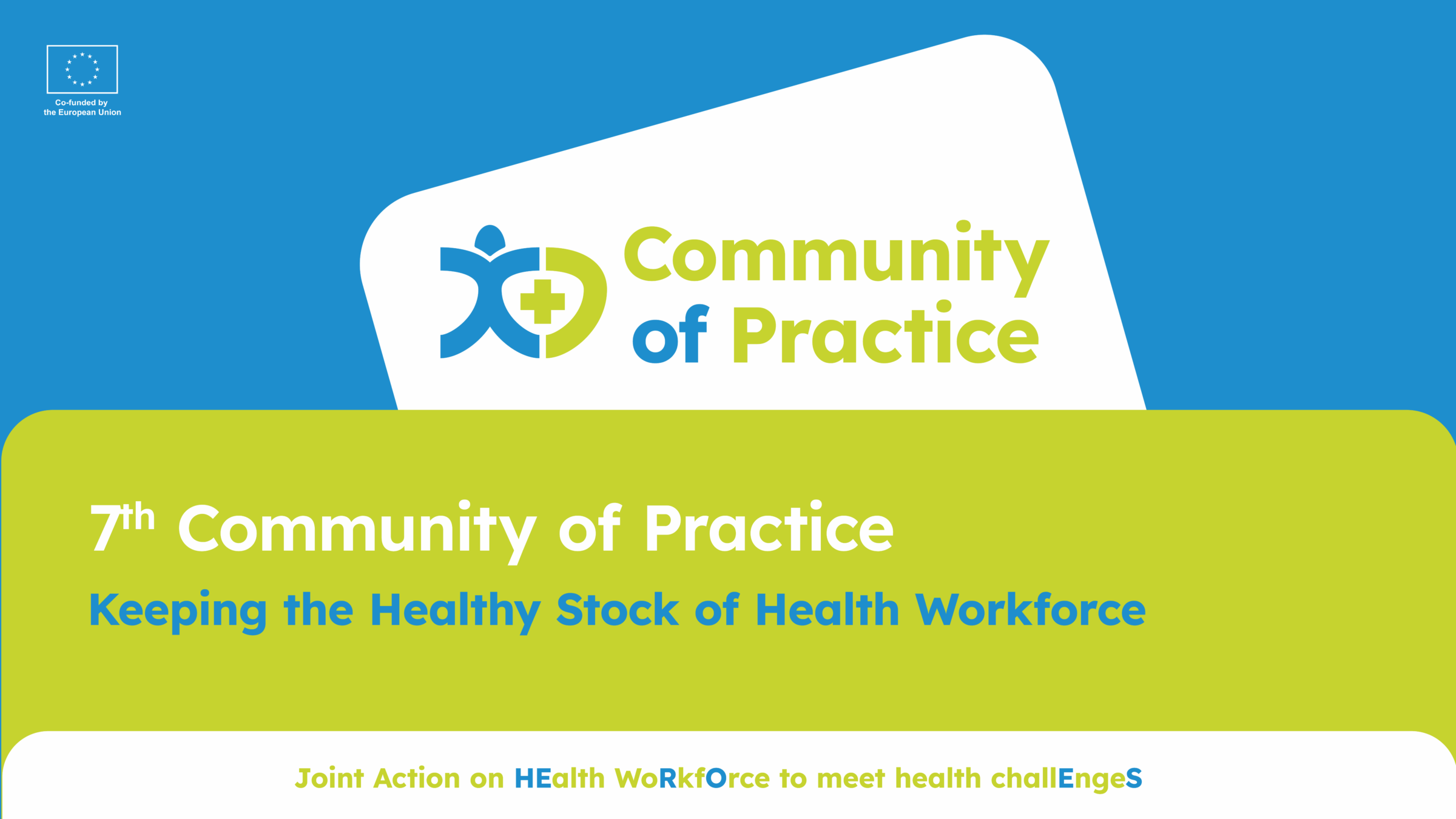Heroes Community of Practice
Keeping the Healthy Stock of Health Workforce – What Should We Focus On?
7th HEROES Community of Practice Meeting
16 May 2025
Hosted by the National Institute of Public Health, Slovenia
The 7th Community of Practice (CoP) meeting of the HEROES Joint Action brought together health workforce experts, policymakers, and researchers to address one of the most pressing challenges facing European health systems today: how to maintain a healthy and sustainable stock of health professionals. Hosted by the Slovenian National Institute of Public Health, the session focused on working conditions, retention strategies, and the broader implications of workforce mobility.
In his opening remarks, Alessio De Boffi (Università Cattolica del Sacro Cuore), coordinator of the CoP series, emphasised the importance of strategic and collaborative responses to health workforce shortages. The event featured a keynote from the OECD and case presentations from Croatia, Slovenia, and Serbia, highlighting both structural challenges and promising national responses.
A European Outlook: OECD Insights on Job Quality and Workforce Retention
Katherine de Bienassis, health policy analyst at the OECD, presented a compelling overview of how job quality influences retention and performance in the health sector. Drawing on OECD’s job quality framework and comparative data, she underlined the paradox many countries face: while the overall number of doctors and nurses is increasing, retention is still weak, and burnout levels are rising.
Only around 20% of primary care physicians across 10 OECD countries report being satisfied with their work-life balance. Survey data from countries like the Netherlands and the UK show similar patterns: insufficient time with patients, increasing administrative burdens, and emotional exhaustion are common experiences. These working conditions not only impact staff well-being but also compromise patient safety and healthcare quality.
The OECD is now working to harmonise metrics on staff satisfaction, burnout, mental health, and intent to leave, in cooperation with WHO and other international partners. De Bienassis stressed that improving working conditions is not only a matter of staff retention, but also a core quality and safety issue.
National Experiences: Common Patterns, Local Responses
Croatia
Ivan Bojčić (Croatian Medical Chamber) and Maja Vajagić (Croatian Institute of Public Health) introduced the “Atlas Liječništva” – a national digital tool that provides real-time insights into physician supply, mobility trends, and regional disparities. This data-driven platform supports strategic health workforce planning, helping policymakers respond to issues such as:
- Emigration of over 1,500 doctors since EU accession.
- Internal migration from rural to urban areas, leading to so-called “medical deserts.”
- Workforce ageing, with retirements approaching the number of new entrants.
They also presented recent reforms, including new nursing specialisations (e.g. emergency medicine), centralised financing of GP residencies, and the removal of mandatory post-specialisation employment contracts for young doctors.
Slovenia
Blashko Kasapinov (NIJZ) described similar trends in Slovenia, where shortages in primary care, emergency medicine, and nursing are putting increasing pressure on the system. Several reforms have been introduced to attract and retain health professionals, such as:
- Simplifying Slovene language exams for foreign-trained staff.
- Introducing specialisations for registered nurses in areas like palliative and primary care.
- Financial incentives for family medicine residents, tied to longer-term public service commitments.
Despite these efforts, dissatisfaction with pay, lack of advancement opportunities, and public-private tensions remain significant issues. Survey results showed that many nurses are considering changing jobs or leaving the sector, while few medical students express interest in emergency medicine.
Serbia
Milena Šantrić-Milićević (University of Belgrade) highlighted Serbia’s serious outflow of health professionals. Surveys show that 80% of medical students and 70% of nursing students are planning to work abroad—primarily in EU countries and the Middle East. Among practising staff, 20% of public health specialists report an intention to leave their job in the near future.
Push factors include low salaries, poor working conditions, lack of professional recognition, and limited career development options. While some return migration programmes have been launched, their reach remains limited.
Reflections and Way Forward
The session concluded with a shared recognition that although national contexts differ, the challenges facing the health workforce across Europe are strikingly similar. Burnout, limited career prospects, geographic imbalances, and weak long-term planning all contribute to a fragile workforce situation.
However, participants also noted the potential of practical tools and policy levers—like Croatia’s Atlas, Slovenia’s financial incentives, and OECD’s harmonised indicators—to support more effective, evidence-based solutions.
As the HEROES project continues, upcoming Community of Practice meetings will provide further space to exchange experiences, identify transferable approaches, and support national and European efforts to strengthen the sustainability and resilience of the health workforce.




